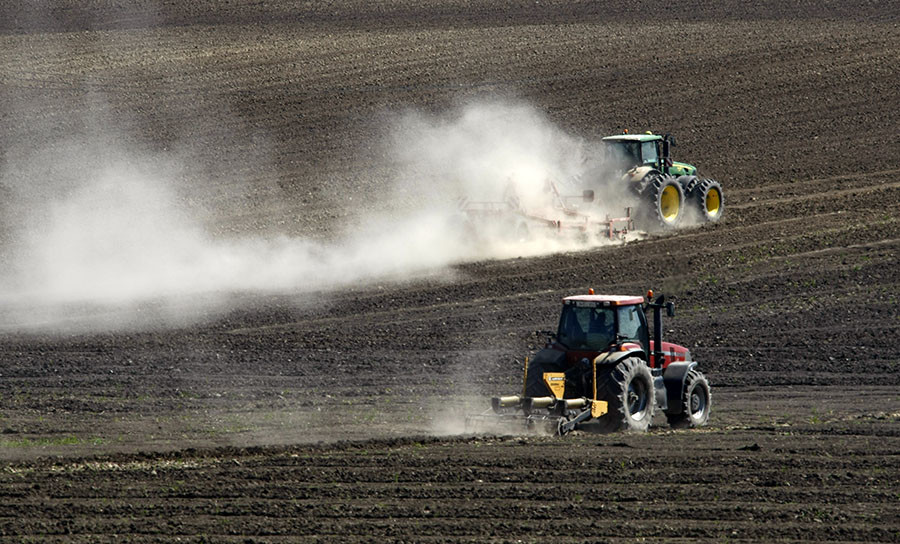Representatives of the German political establishment have once again called for the lifting of anti-Russian sanctions. A statement to this effect in the Rheinische Post was made by the head of the Christian Democratic Union party in the state of Thuringia, Mike Moring.
According to him, if the financial restrictions of the European Union against Moscow do not greatly harm the economy of Germany, then the response measures taken by the Russian side cause significant damage.
“The sanctions of Moscow against Germany are causing us the most damage, especially in the field of agriculture,” Moring explained.
He noted that residents of the eastern part of Germany expect normalization of relations between the countries, since closer ties with the Russian Federation are built here than in the west of Germany.
“The most important thing is to maintain a dialogue with Russia. All hopes are connected with the expectation of a bilateral rapprochement on the basis of the Minsk agreements, ”added the head of the CDU in Thuringia.
The statement by the German politician is not surprising, since in the eastern lands everyone is positive about restoring ties with Russia, said Vladimir Bruter, an expert at the International Institute for Humanitarian and Political Studies.
“As for the Russian counter-sanctions. When Russia introduced them, everyone believed that there was nothing serious and important in this. However, the fact is that agriculture, unlike the sanctions that were imposed against Russia, is an irretrievable loss. The West simply could not replace the Russian market, there is no longer any similar in volume. Yes, this is not the kind of money that can drop the German economy, but this is an annual loss of € 3-4 billion plus lost profits, which was formed due to trade cooperation, ”explained the source RT.
Along with this, he pointed to a standard Western position regarding the alleged involvement of Russia in the implementation of the Minsk agreements. According to him, in the West in this matter are engaged in the substitution of concepts.
German business suffers serious losses from the sanctions confrontation between the EU and Russia, says Pavel Salin, director of the Center for Political Studies of the Financial University.
“The issue is that the statements are made by statements, but when the question arises of US pressure on the German authorities, on the one hand, and business pressure on the German authorities, on the other, the American side usually wins. That is, they have more resources and means of influence, ”the expert said in an interview with RT.
Germany position
Earlier, many German politicians called for the lifting of sanctions and more active cooperation. In particular, the prime ministers of the federal states of Mecklenburg-Western Pomerania, North Rhine-Westphalia, Lower Saxony, Bundestag deputy Stefan Köyter, member of the Berlin Chamber of Deputies, German politician from the Alternative for Germany (AdG) party, Gunnar Lindemann, chairman of the Bundestag committee on economics and energy Klaus Ernst.
The need for rapprochement was also discussed by the Chairman of the CDU, Annegret Kramp-Karrenbauer, the former Minister of Justice of Germany, Hans-Jochen Vogel, as well as the head of the largest German chemical concern BASF, Martin Brudermüller.
At the same time, 69% of the inhabitants of Germany would like to expand ties with Russia. This is stated in a public opinion poll published by the American research center Pew Research Center and the German Körber Foundation in November 2018.
Meanwhile, German Chancellor Angela Merkel, leaving her post in 2021, emphasized that the issue of lifting anti-Russian sanctions is tied to the implementation of the Minsk agreements. At the same time, Merkel herself, in her words, has always advocated and will continue to advocate good relations with Russia.
“The need to implement the Minsk agreements is due to the fact that the cooperation opportunities (with Russia. - RT ) are still not what we would like them to be,” said the German leader in August 2019.
Meanwhile, Russian officials have repeatedly emphasized that Moscow is not a subject of the Minsk agreements to resolve the conflict in the Donbass, but acts as an intermediary in this format. At the same time, Ukraine is primarily responsible for non-compliance with the Minsk agreements.
Sanction Relations
Recall that on August 6, 2014, Vladimir Putin signed a decree “On the application of certain special economic measures to ensure the security of the Russian Federation” in response to Western sanctions against the Russian Federation. On the same day, an embargo on imports of certain types of agricultural products from the USA, EU, Canada, Australia and Norway entered into force. The restrictions applied to sausages, meat, vegetables, fruits, seafood, fish, as well as cheeses and other dairy products.
On June 24, the head of state extended extended the pro-embargo until the end of 2020 in response to the unfriendly actions of Brussels, a few days before this prolonged the sanctions against Moscow.
According to expert data, in connection with the introduction of such restrictions, Russia received less than $ 50 billion, while the EU lost $ 240 billion.
- Reuters
- © Fabrizio Bensch
According to the estimates of the Ministry of Agriculture of the Russian Federation, the ban on the supply of Western goods and import substitution work in the agricultural market led to the fact that since 2014 Russia has exceeded the food safety indicators of the domestic market for grain, sugar, vegetable oil, potatoes, meat and meat products.
The successes of Russian agribusiness were also noted in the United States. According to an August report from the US Department of Agriculture’s Foreign Agricultural Services, Russia's domestic agricultural production has increased by 30% over the past five years.

